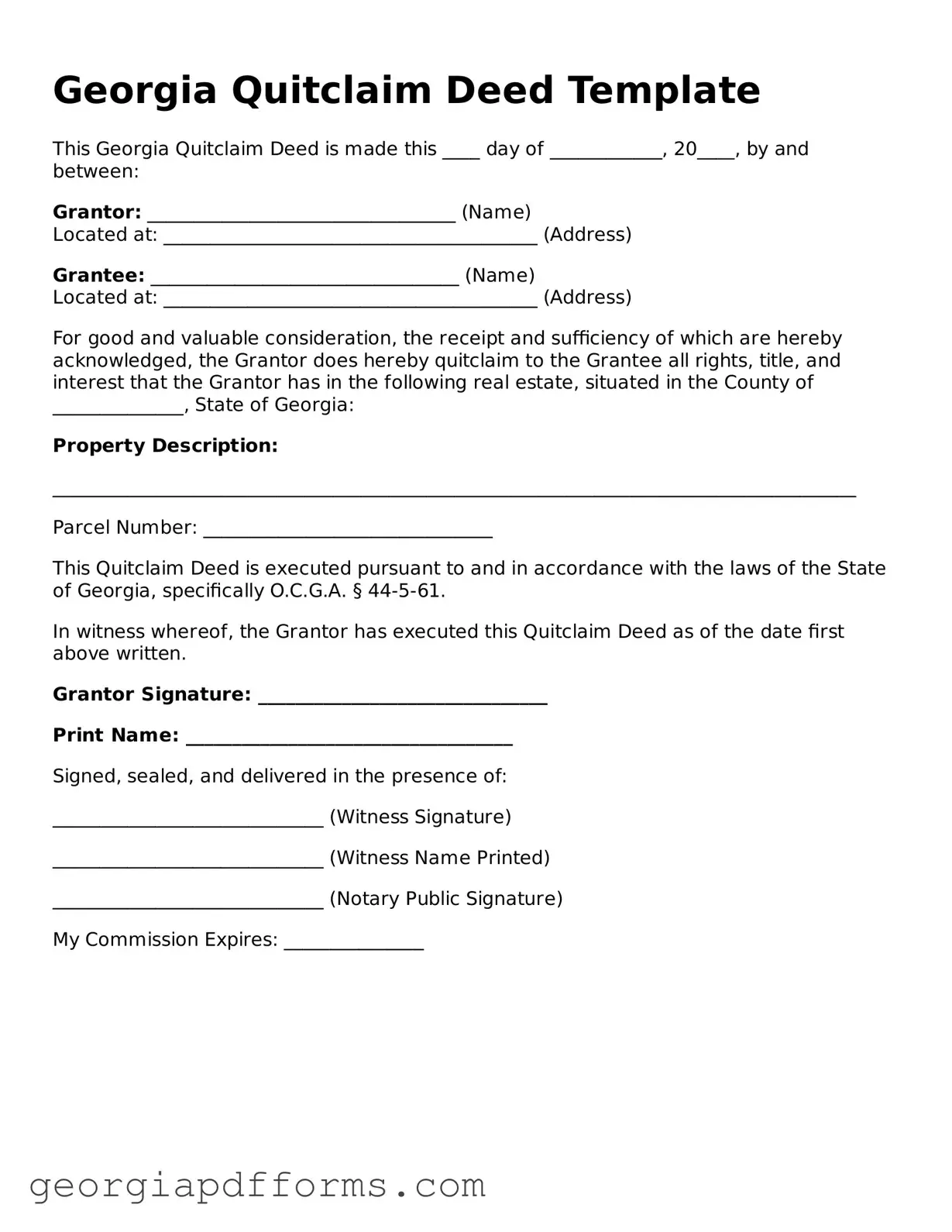Official Quitclaim Deed Document for Georgia State
A Georgia Quitclaim Deed is a legal document used to transfer ownership of real estate from one person to another without any guarantees about the property’s title. This form is often utilized in situations where the parties know each other, such as family members or friends, and trust that the transfer will be straightforward. Understanding how to properly complete and file this deed is essential for ensuring a smooth property transfer process.
Access Editor Now

Official Quitclaim Deed Document for Georgia State
Access Editor Now
Almost there — finish the form
Fill and complete Quitclaim Deed online fast.
Access Editor Now
or
Free PDF File
